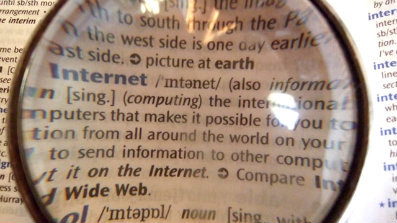I’ve just polluted a perfectly wonderful blog post over at Multi-Hyphenate, and I’m feeling a little ashamed.
No, not the blog troll sort of graffiti that I find reprehensible. But the kind of run-on comment that should have been a blog post instead of clogging up someone else’s blog post (which I alsofind reprehensible.) So… aside from a mumbled apology at the end of my comment, I’m reposting my thoughts so their wise editor is free to abbreviate or remove the comment I posted to Annie Q. Syed’s “There is No Muse“.
A “muse to amuse your ego” is an amusing and clever tongue twister that I can’t resist borrowing for a quick blog post… But I’m not sure I’m 100% convinced.
I’m with you here: “At the end of the day… you are simply a storyteller and you have a job to do: tell the damn story. ” Just spent this morning listening to Tom Ashbrook interviewing Eric Bogosian about his novel, “Perforated Heart”. (You can hear the On Point rebroadcast, but note it was originally broadcast May 26, 2009.) He tells the story. In more modes, manners and muddles than most storytellers,

Eric Bogosian (Image via RottenTomatoes.com)
Bogosian tells the damn story. An acquired taste, especially if you’re not male and/or not connected in some way with NYC, but Bogosian is a storyteller without precious, pretentious muse mongering.
Or is he? Perhaps we just don’t meet his muse. Perhaps Bogosian’s muse is personal, intimate, private. Perhaps it is a changing muse, evolving along with his own writing style, ambition, skill. I don’t know. And frankly, I don’t much care because his storytelling stands on its own, muse or no muse.
What’s the point? I think that storytelling need not be divorced from muse. A muse. Many muses. But the story, the finished product, need not reflect the role of the muse in the creative process. A storyteller’s craft is complex, and the journey is often long (as you’ve readily acknowledged) between story seed and finished story. For me, the muse is one part of that journey. She’s part inspiration, as you’ve mentioned above, but she’s also my collaborator. I don’t mean to get too fanciful hear, but recall that storytelling is not a hermetic art. It requires an audience. Else it is mere babbling! The burps and farts of a crazy man. You’ve said, “Sometimes when I write words feel like picking precious beads in sand.” Right! And why? Because you’re not writing for yourself alone. You’re telling a story for an audience and precise, accurate language is the currency of a storyteller if s/he is to find a receptive audience. I’ve slipping into pedantic drivel, sorry…
So inspiration, yes, but my muse is also more of a collaborator. Like music to a dancer. And perhaps also like a dance partner. I’m a crumby (but enthusiastic) dancer, so take this comparison for what little it is worth. I can dream up a clever dance, practice and refine my steps, my rhythm, my gesture, my poise, etc. But it’s only when I attempt this creative process in conjunction with music — real or imagined — that my dance evolves away from the dizzying courtship of a park pigeon into something more compelling, more complete. And better still when I extend my hand to a dance partner — real or imagined — to enter into the dance with me, to mirror, to oppose, to resist and beguile and charm and challenge that something beautiful can be born.
Yes, I’ve overextended the metaphor. Apologies! But there’s an idea in there, an idea that a creator can extend the limits of his or her creativity significantly when amused by a muse. ;-)
That indulgent difference aside, there’s much we agree on. The work of a storyteller is also to know the difference between this creative dance and the hard work of distilling the finished product from the draft. After narcotic creativity transports the storyteller beyond initial inspiration and indeed often beyond the anticipated scope of the story, it’s time to begin the hardest work. The editing, the weeding, the focusing, the revising. The muse does not belong in this process, at least in my own writing. She’s a temptress, a dazzling temptress who’s creative genius forever outstrips my own. And so the time comes when I must bid her farewell, for a while, remove my dance shoes, sit down at my desk and work. Dancing is divine, but I have a job to do!
- Consulting Your Writer’s Muse (blogcritics.org)
- Managing my Muse (writeami.wordpress.com)
- Talker’s block (sethgodin.typepad.com)
- Avoiding the Muse (dawnewebber.wordpress.com)
- Is Journaling a Cure for Creative Blocks? (artistsroad.wordpress.com)
- My Muse (wellnessspirit.wordpress.com)
- My Muse has ADHD (megganconnors.wordpress.com)
Like this:
Like Loading...












